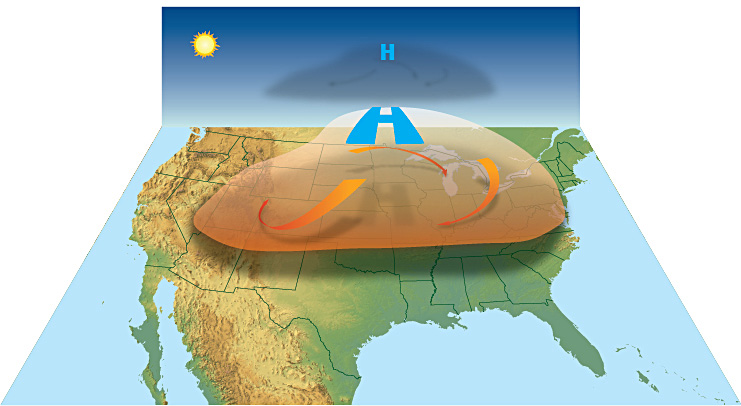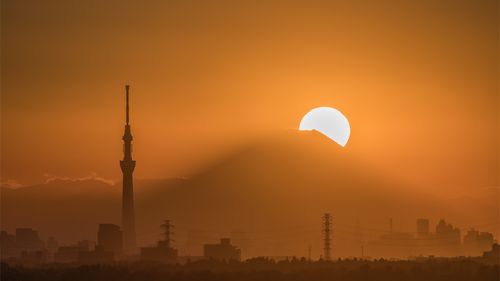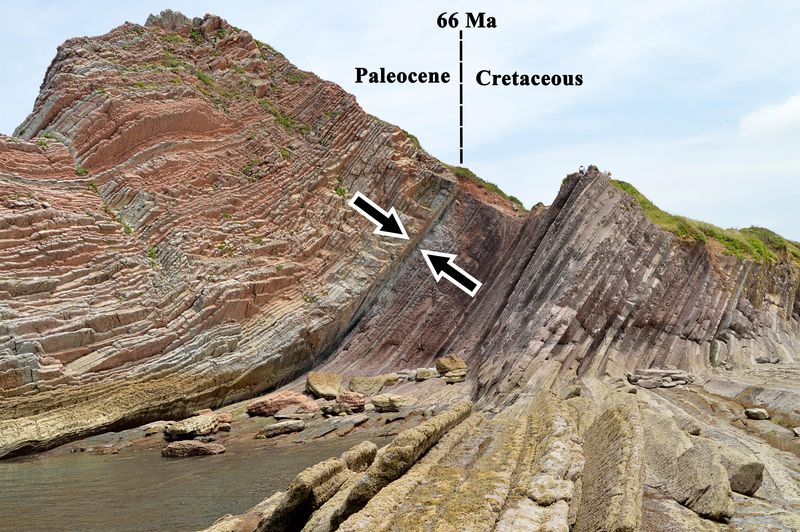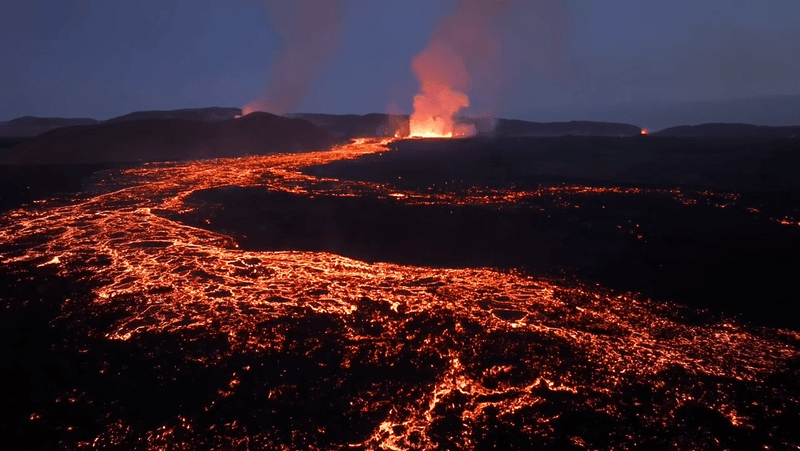You’ve probably noticed that the world is on fire right now, and that includes Japan.
Having just dealt with horrific rain and floods that led to hundreds of deaths, it’s now burning in a heatwave that the Japan Meteorological Agency (JMA) has declared to be a natural disaster. As dozens die, temperature records just keep getting broken.
On Monday, temperatures peaked at 41.1°C (106°F) in Kumagaya, a town close to Tokyo, smashing the previous national all-time high by 0.1°C (0.18°F) back in 2013.
Temperatures have lingered in the low-40s in recent days, and as picked up by Earther, around 70 percent of JMA’s weather stations have recorded temperatures above 30°C (86°F). As of July 22, the highs in Kyoto have been above 37°C (99°F) for nine consecutive days, a first since records began in 1880.
On July 20, as pointed out by an NHK meteorologist, multiple cities – including Tokyo itself – have reached all-time highs. The heat indices, which take into account relative humidity to reveal what the temperature actually feels like, peaked at a staggering 47°C (117°F) in Fukuoka on the western isle of Kyushu.
As reported by BBC News, more than 22,000 people in the country have been admitted to hospital suffering from heatstroke. The heatwave is currently in its third week, and at the time of writing, 77 people, from the very old to the very young, have died as a result.
“This heat is a threat to life,” a JMA official told Kyodo News. “We recognize it as a natural disaster.”
The heatwave is being caused by something called a heat dome. As explained by the National Oceanic and Atmospheric Administration (NOAA), this is when a high-pressure zone gets stuck in the upper atmosphere. In this case, the blockage is thanks to a warped jet stream that's not doing its atmospheric circulation job properly over the archipelago.
This zone then acts as a cap, which prevents hot air from escaping. Consequently, this warm air heads back to the surface, and takes on more heat in the process.

There is, of course, a bit more to the story than that.
Let’s be clear here: None of these potent events can currently be directly linked to anthropogenic climate change. Saying that, as the 2014 US National Climate Assessment makes clear, more intense, widespread, and frequent heatwaves like this are exactly what we should expect to see as time ticks on.
These heatwaves do happen naturally, and it’s important not to accidentally overstate the influence of climate change. However, as Prof. Katharine Hayhoe, the director of the Climate Science Center at Texas Tech University, told IFLScience: “We’ve altered the background conditions of our planet to such an extent that every event now has some component of human influence, moderated and modified by natural variability.”
Climate change is complex, and it isn't always about warming – sometimes it leads to cooler and wetter conditions, for example. Nevertheless, the extreme nature of these heatwaves is potentially and partially symptomatic of our inability to curb our greenhouse gas emissions. Our actions have already led to a long-term global warming trend, and heat extremes are easier to set if the lower boundaries are pushed ever higher.
“As climate changes, the statistics of our heat extremes are also changing, becoming more frequent and more severe,” Hayhoe noted. “It’s like a pair of dice: we always have a chance of rolling that double six, that killer heat wave, naturally.”
Over time, though, “climate change is sneaking in when we’re not looking and replacing one, then another number, with another six – and maybe even a seven. Now our chances of rolling that double six are greater, and we might even roll an unprecedented seven.”
What’s happening in Japan, Greece, Scandinavia, North Africa, and elsewhere is a disaster, that’s for sure. It’s also a perfect example of how climate change affects everyone – although poorer, inequality-riddled regions suffer the most severely – no matter where in the world you are.




